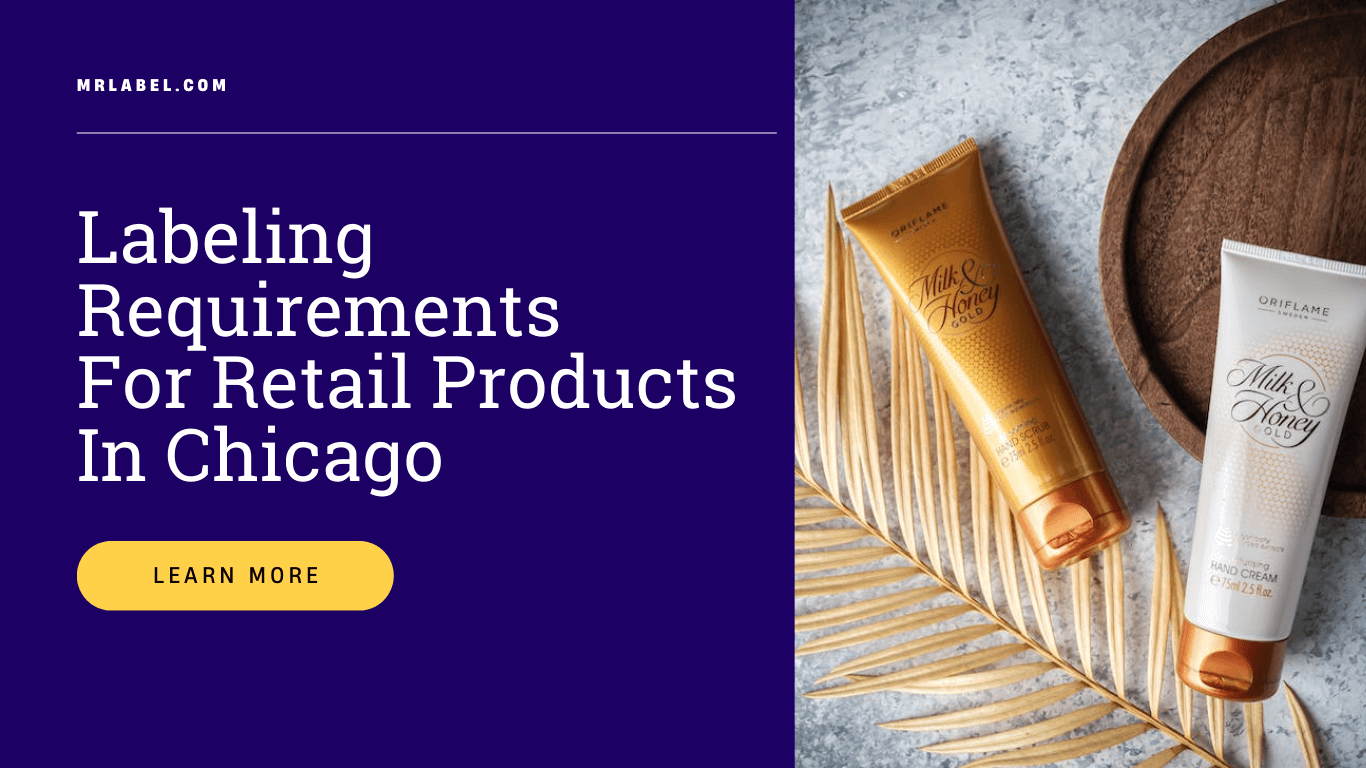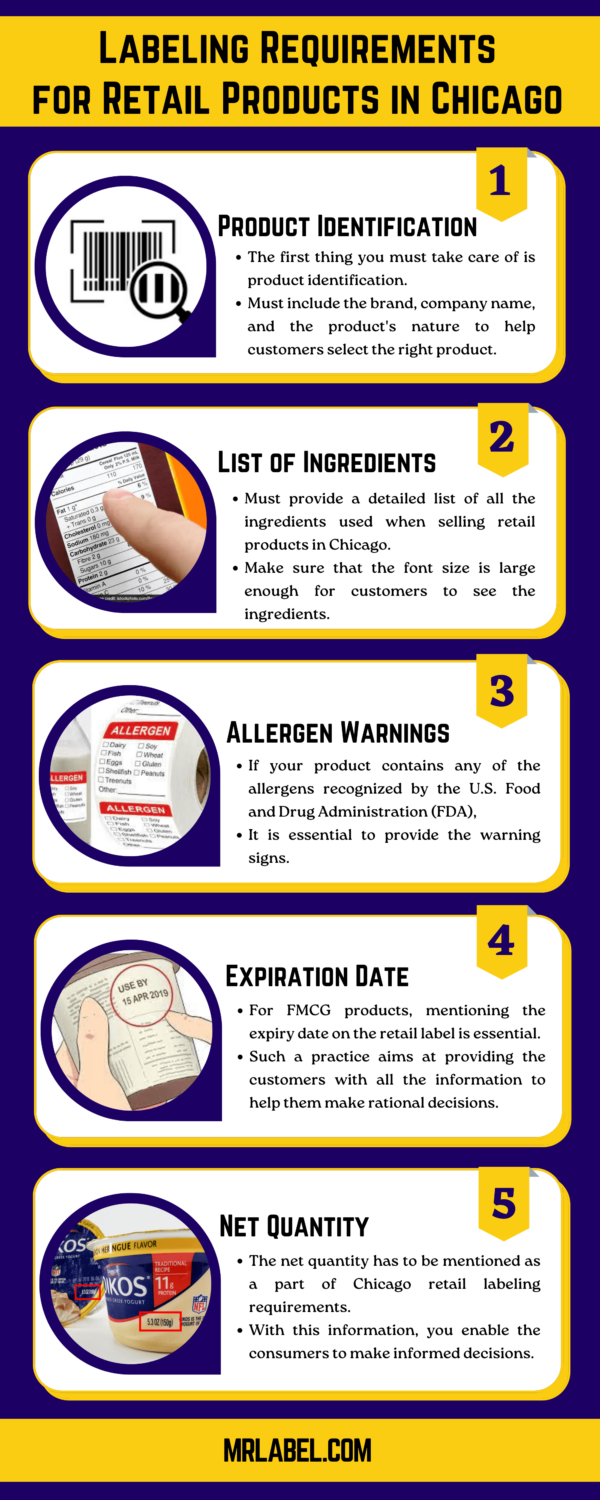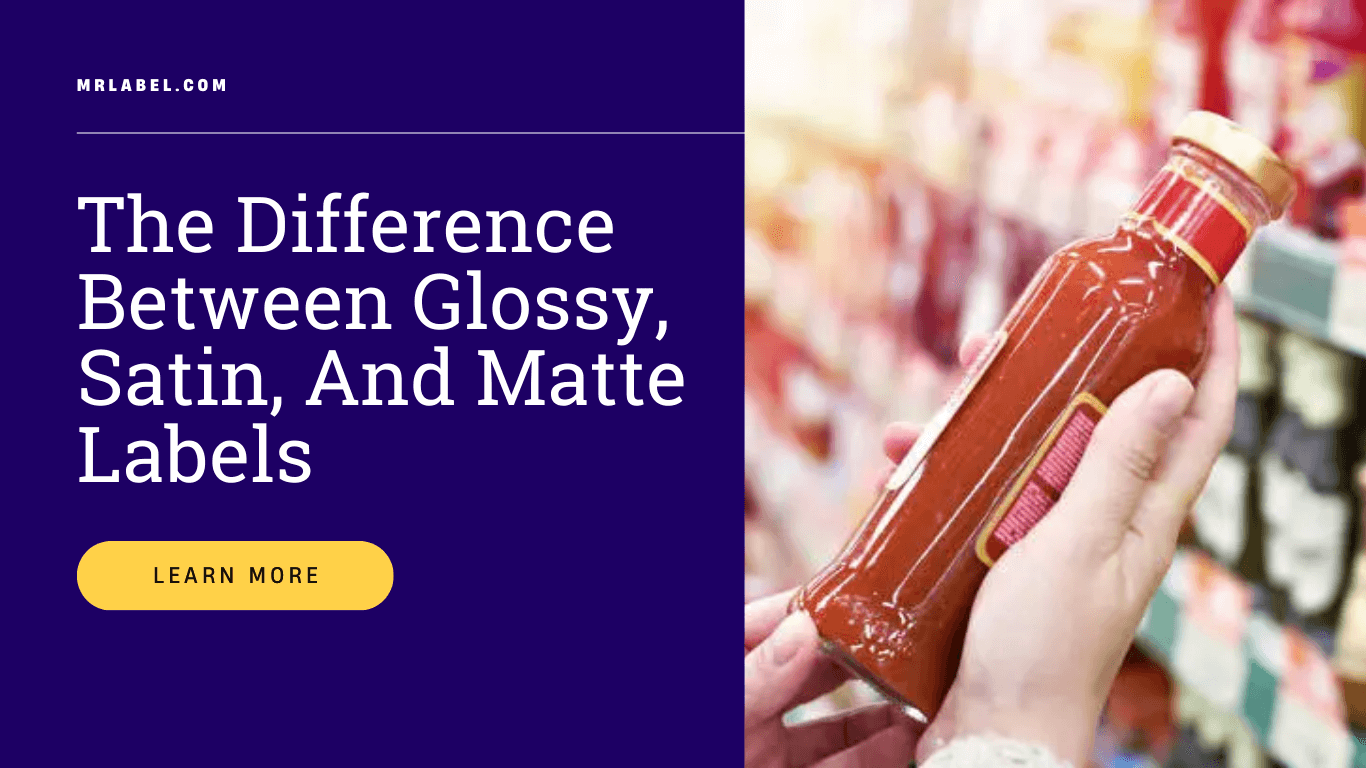Selling your retail products in Chicago is a lucrative option to cash. But to bring your products to the market, it is essential to fulfilling the labeling requirements set forth by the local authorities in Chicago.
With proper labeling, the authorities can get multiple benefits that include higher consumer safety, more transparency, and fewer legal complications.
What exactly must be covered on the labels for selling retail products in Chicago that would be legally compliant and helpful for consumers? Let’s find out:
Product Identification:
While designing your retail product, the first thing you must take care of is product identification. You must include the brand, company name (if applicable), and the product’s nature to help customers select the right product. Besides, there’s a specific id assigned to the product so it can be easily traced.
It is better to create a distinctive outlook than your competitors so consumers do not misperceive it. If you’re launching a new product, you might get a bit of benefit in the early days. But the same branding as a competitor’s will be a problem in the long run.
List of Ingredients
When selling retail products, Chicago labeling requirements require you to provide a detailed list of all the ingredients used. While providing this list of the ingredients, mention the ones used in higher quantities to be on the top and the ones in the least amount at the bottom.
While mentioning the ingredients, do not forget that the font size must be big enough to be legible for the customers.
Allergen Warnings:
If your product contains any of the allergens recognized by the U.S. Food and Drug Administration (FDA), it is essential to provide the warning signs. Some of the major allergens include milk, eggs, peanuts, tree nuts, wheat, soy, fish, or shellfish. To comply with the Chicago labeling regulations, it is important to mention the allergenic ingredients.
Net Quantity:
The net quantity has to be mentioned as a part of Chicago retail labeling requirements. Volume and product quantity are a few other things that must be mentioned on the product label. With this information, you enable the consumers to make informed decisions.
Manufacturer’s Information:
Manufacturer information is another aspect that must be part of your retail labels. You must also provide the customers with the contact information so they know whom to contact in an emergency.
Country of Origin:
Considering the Chicago retail printing environments, mentioning the country of origin is essential. Food, electronics, and clothing are the primary sectors where this information is necessary and your labels must have it.
Expiration Date and Lot Number:
For FMCG products, mentioning the expiry date on the retail label is essential. Such a practice aims to provide customers with all the information to help them make rational decisions.
Besides, providing the lot number on the labels can improve traceability and quality control. For situations like customer complaints or product recalls, the businesses, customers, and regulatory authorities can pinpoint the problem to the specific batch.
Regulatory Compliance:
Also, it is important to comply with federal, state, and local laws. Chicago’s labeling requirements might align with or surpass the other laws, so check the latest regulatory requirements to avoid legal problems or complications with your brand.
Conclusion:
The design of the label and its compliance with the regulatory requirements is essential, irrespective of the city you’re selling your product in.
Based on the Chicago regulatory requirements, we have mentioned a few important aspects your labels must cover. However, the requirements might change with time. So, reviewing the updated version before you finalize the retail product label design and layout is essential.
M&R Label is the label printing company in Chicago that remains current with the standards and ensures the best label prints across different industries. If you need your retail labels, contact us today!




